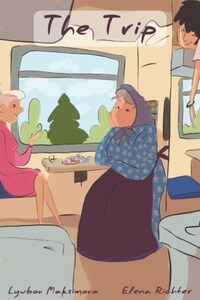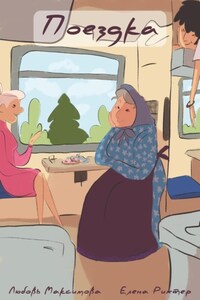The Trip
Baba Dunya loved to visit her sisters, Varya and Pasha. She never told them she was coming, everything was done spontaneously, like a bolt from the blue – she made up her mind, packed up and set off.
She lived in a village in Altai. It was necessary to catch a train to visit her sisters, they lived a small town called Ilyinsk, that was not very far from Novosibirsk.
Baba Dunya usually bought an ordinary second class ticket and sat with everyone else in the normal carriages, and as usual… the carriage would be crowded and cramped: some were standing, most were sitting, some got off at the stations, others came in. Baba Dunya always tried to sit by the window (so that no one would disturb her) and watch people. While on her trip, that usually took about 12 hours to the station she needed, she would talk to almost everyone and would listen to everything. She noticed that the village people travelled less than the city dwellers. "Yes, and when would they have time to travel," thought Baba Dunya, "there is a lot of work on the collective farm, and not much less at home. They will rise early and work until late in the evening they are always doing one or the other, farm or home work. The village people frequently do not see how the sun rises and how it goes over the horizon. It is especially hard in summer – every day you need to live usefully. As they say, if you don’t drown in summer, you won't break in winter!".
Usually, the villagers gathered in the carriage in "bunches" and talked about their hard life. Baba Dunya did not get involved in such conversations and did not complain about her own share. She knew all about the troubles and problems of village life and did not want re-live the daily grind. During her 78 years of life, she experienced terrible vicissitudes – collectivization, dispossession, the years of war … and well, it’s passed, she survived. The present life was much better and more interesting than the past one, which she did not want to remember and think about.
But she wanted to talk with the "city dwellers" and to learn about their lives. They seemed strange to her – and they didn't dress like the villagers, and they were freer in communication. She was always surprised by their conversations about stores and the advice they gave each other – where to get a scarce product at a reasonable price.










